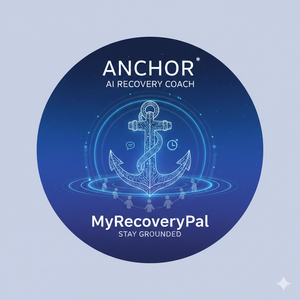
There was a time when I’d scroll through Instagram, comparing my rock bottom to everyone else’s highlight reel, convinced that being broken was something to fix, hide, or be ashamed of. Now I know better: being broken isn’t something to hide. It’s the very thing that makes us whole.
If you’re looking for a practical tool to support your journey, check out my recovery journal on Amazon — it’s designed to help you process the real, raw moments of healing.
The Dangerous Game of Perfect Lives
We live in a world where vulnerability is often seen as weakness. Our social media feeds are carefully curated museums of our best moments — the promotion, the vacation, the perfect family photo where everyone’s actually smiling at the same time. Meanwhile, the real stuff — the anxiety attacks, the relapse scares, the marriage struggles, the nights we cry in our cars — those stay hidden in the shadows.
But here’s what I’ve discovered in recovery rooms and in life: when we keep our struggles hidden, they don’t disappear. They grow. They fester. They multiply in the darkness like mushrooms in a damp basement. The shame we feel about our imperfections becomes heavier than the imperfections themselves.
The Church Paradox
One place where this hiding reaches almost tragic levels is in church. We dress up our outsides and our insides for Sunday morning, presenting the version of ourselves we think God wants to see. But here’s the thing about trying to fool an omniscient being — it’s a losing game.
God already knows about the bottle hidden in the garage. He knows about the credit card debt, the resentment toward your spouse, the addiction recovery you’re struggling through. He knows about the mental health medication you’re afraid to tell anyone you’re taking. And here’s the beautiful part — He wants you anyway. Not the sanitized version. The real, messy, complicated you.
The recovery principle of bringing our whole selves to our higher power isn’t about impressing anyone. It’s about healing. It’s about admitting that we can’t do this alone, that our brokenness isn’t a disqualification but an invitation to transformation.
Jesus and the Beautiful Reality of Imperfection
Here’s something that changed my perspective on faith and recovery: Jesus wasn’t drawn to the perfect people. He was drawn to the broken ones.
When the religious leaders criticized Him for eating with tax collectors and sinners, Jesus responded with words that should be tattooed on every recovering person’s heart: “It is not the healthy who need a doctor, but the sick. I have not come to call the righteous, but sinners to repentance” (Luke 5:31–32).
Think about who Jesus spent His time with. He touched lepers — people so broken by disease that society literally cast them out. He didn’t wait for them to get clean first. He didn’t require them to hide their wounds. He met them in their brokenness and offered healing through connection, not isolation.
And look at the disciples He chose. These weren’t spiritual superheroes. Peter — the rock upon which the church would be built — denied knowing Jesus three times when things got scary. Thomas doubted. James and John were so hot-tempered they were called “sons of thunder.” Matthew was a tax collector, considered a traitor by his own people. These were flawed, imperfect, beautifully broken people who changed the world not in spite of their weaknesses, but through them.
Even Paul, arguably the most influential Christian writer in history, was refreshingly honest about his struggles. He wrote about a “thorn in his flesh” that tormented him, something he begged God to remove. But God’s response? “My grace is sufficient for you, for my power is made perfect in weakness.” Paul’s conclusion should be the anthem of everyone in recovery: “Therefore I will boast all the more gladly about my weaknesses, so that Christ’s power may rest on me” (2 Corinthians 12:9).
Paul understood something profound — our imperfections aren’t obstacles to spiritual growth or recovery. They’re the very channels through which healing flows. When we’re weak, we’re forced to rely on something greater than ourselves. When we’re broken, we make room for grace.
Sharing the Weight
In addiction recovery, we have a saying: “We’re only as sick as our secrets.” The same applies to any form of healing — from mental health recovery to grief processing to rebuilding after any life crisis. When we share our burden, something miraculous happens. It doesn’t disappear, but it becomes lighter.
Think about it — when you’re carrying a heavy couch, having someone grab the other end doesn’t make the couch weigh less. The couch is still the same weight. But suddenly, it’s manageable. That’s what happens when we stop pretending we have it all together and start admitting we need help.
The Freedom in “Me Too”
The most powerful moments in my sobriety journey haven’t been the milestone celebrations (though those are wonderful). They’ve been the moments when I’ve shared something I was ashamed of, something I thought made me uniquely broken, only to hear someone else say, “Me too.”
Those two words have more healing power than any motivational quote on Instagram. They remind us that our struggles don’t make us outcasts — they make us human. Our character defects, our areas of opportunity (I love that recovery euphemism), our spectacular failures — these aren’t bugs in our programming. They’re features that connect us to every other beautifully broken person trying to figure out this thing called life.
The Asset of Authenticity
Here’s what accepting your brokenness gives you that perfection never could:
Connection — Real, deep, meaningful relationships are built on truth, not performance. When we show up as ourselves, flaws and all, we give others permission to do the same.
Growth — You can’t fix what you won’t acknowledge. Accepting our imperfections is the first step toward addressing them. Not to become perfect, but to become better.
Compassion — When we stop judging ourselves so harshly, we naturally extend more grace to others. Recovery teaches us that everyone is fighting battles we know nothing about.
Purpose — Our mess becomes our message. The things that once brought us shame become the very experiences that allow us to help others.
Living in the Light
Today, I don’t hide my recovery story. I don’t pretend that getting sober suddenly made me perfect. I still have days where anxiety wins. I still struggle with character defects that probably aren’t going anywhere anytime soon. I still have to work my program, one day at a time.
But I’ve learned that healing happens in the light, not in the darkness. Whether you’re in addiction recovery, dealing with mental health challenges, or just trying to survive the beautiful catastrophe of being human, remember this: your brokenness isn’t a liability. It’s an asset.
The cracks are where the light gets in. The struggles are where the strength develops. The failures are where the wisdom grows.
So maybe it’s time to stop curating the perfect image and start celebrating the perfect mess. Because the truth is, we’re all recovering from something. And the sooner we admit it, the sooner we can heal.
Remember, you’re not alone in this journey. Every story of recovery starts with the courage to admit we need help. That’s not weakness — that’s the beginning of strength.


Comments (0)
Login to leave a comment.
No comments yet. Be the first to share your thoughts!